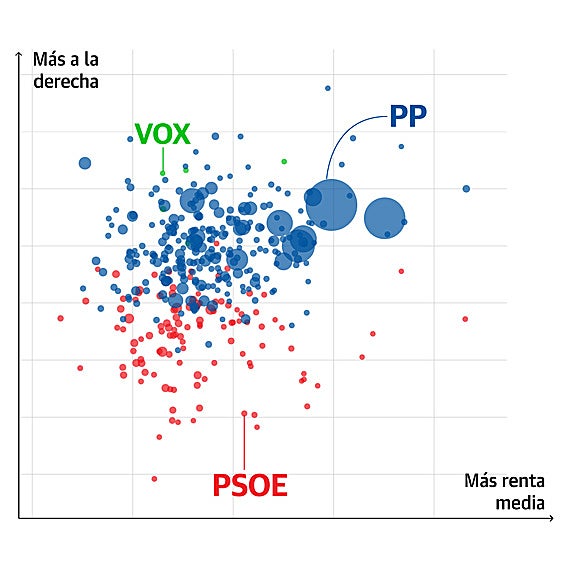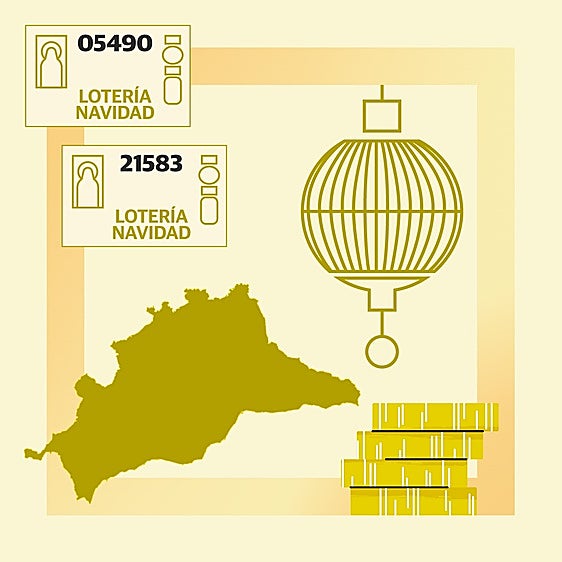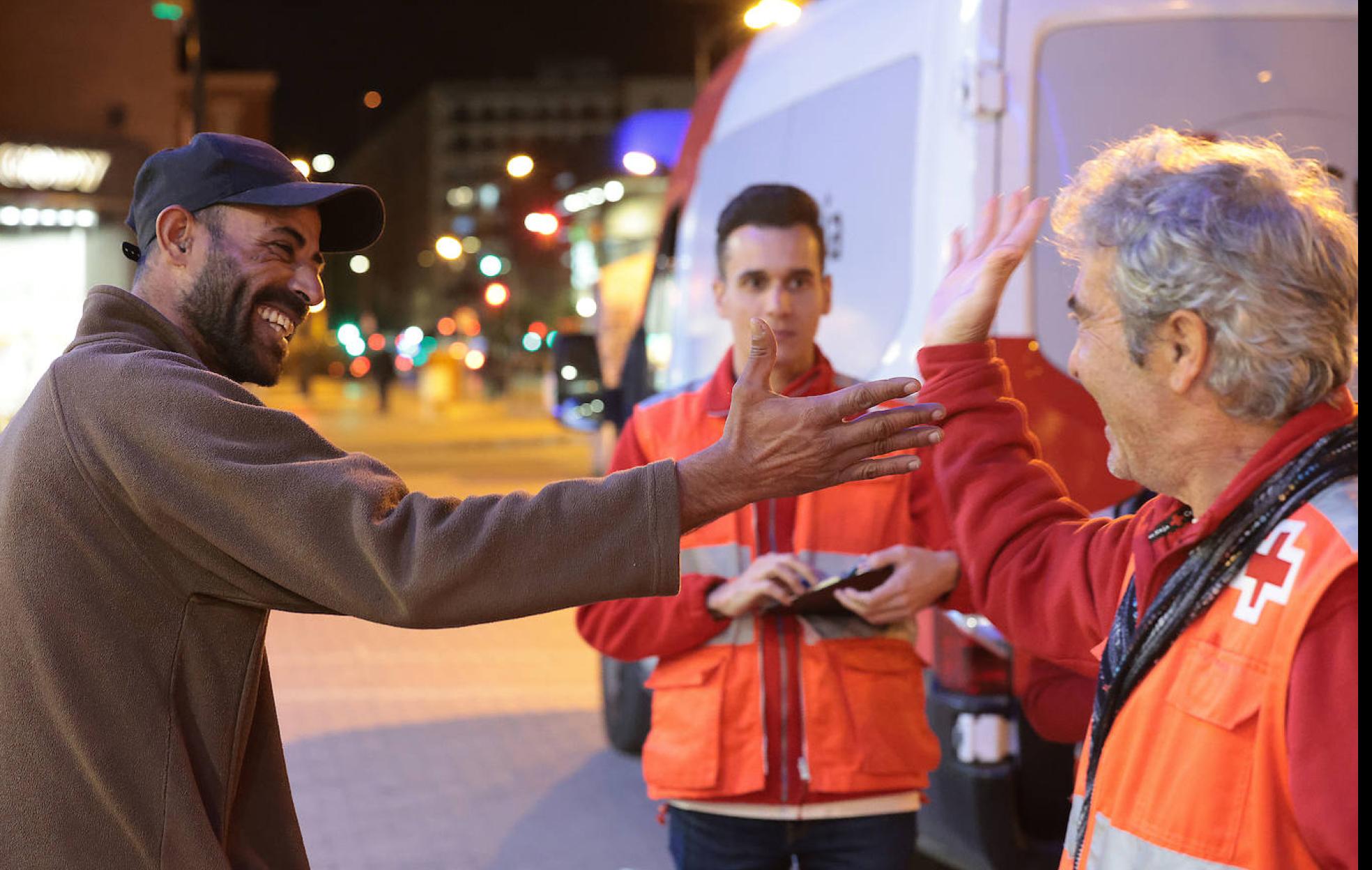Food, blankets and a chance to get off the street
Commitment ·
A team from SUR accompanied Cruz Roja volunteers who go round Malaga offering food and warmth to homeless people, as the initial form of contact in the aim of helping them return to a normal way of lifeCristina Vallejo
Friday, 3 February 2023, 13:22
If anyone thinks that homeless people do not really exist as far as other people are concerned, that they are invisible, that because they don't count they are not included in the statistics, except maybe as a number with no name, then they are mistaken. In Malaga city the council and organisations coordinated by Puerta Única know them, are aware of their situations, advise them and suggest ways they can escape from exclusion within the narrow margins imposed by their lack of resources.
For example, the most visible thing that Cruz Roja (the Spanish Red Cross) does on Mondays, Wednesdays and Fridays in the city is give out food and blankets to dozens of homeless people and provide them with some warmth on the cold winter nights. But the organisation's real objective is to offer them a 'hook' so they can go back to a more normal life with work, a roof over their head and personal autonomy.
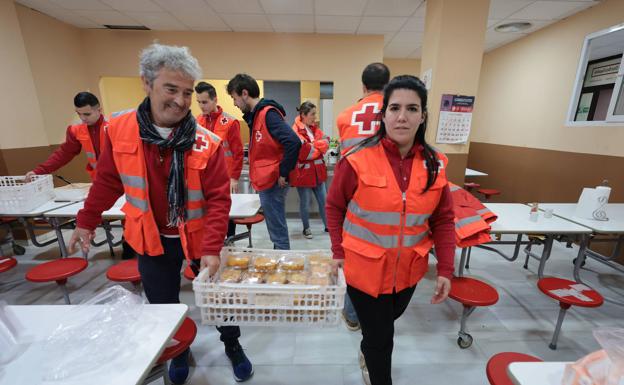
The containers of food are an excuse for the volunteers to make and maintain contact with homeless people. "We assist all types of people who are living rough. We give them information. We go out every week and the volunteers keep in contact to see if between us we can provide them with a 'hook'," says Miguel Ángel Montero, a social worker and Cruz Roja volunteer.
The reality of homelessness is very varied. It goes beyond people having no roof over their head. Elena Ballestero of Cruz Roja says the concept also includes those who are about to be evicted or who are unable to pay their basic bills.
Joselu and his partner Yomara are examples of this in Malaga. They live in an apartment that Joselu inherited but Yomara complains that he wants to spend all day in the street, while she would prefer a more normal and ordered life. After spending all day outside they come home to a place where there is no electricity or water. "I don't live on the streets, I have a home, but I live worse than people who are homeless," Joselu says. Their problems go beyond housing and finances; he says he receives a pension of 480 euros "because of my head,", and he admits that he has spent 30 years - half of his life - behind bars.
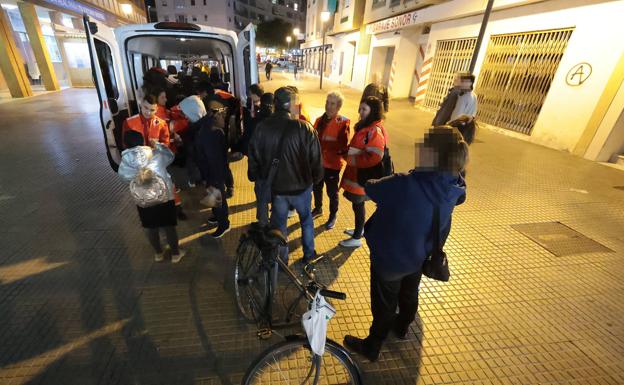
The lives of this couple are marked by conflict and instability: because of their differences they become angry, they fight, she leaves him, he goes looking for her... but Yomara does not want to go into a refuge: "There are so many rules and people get into fights over any stupid thing," she says.
She is hoping to get into a hostel soon, where she believes there is more freedom, although the fact that she has lost her identity document, which she needs, is a problem, and she is taking tablets to combat depression. Mental illness often affects people in the street: sometimes it is a cause of their problems and sometimes an effect. When it comes to sleeping, anything is better than a park, Yomara tells us. The idea of doing that terrifies her.
There have always been fewer women than men in the streets, but the proportion is rising, a symptom of a deteriorating economic situation and the weakening of close social networks. Women are at less risk of having to sleep rough because they tend to have more personal networks and social support, as they are the ones who normally look after their children. But it is also harder for women to return to a normal life once they have become homeless, because there are few facilities to help them.
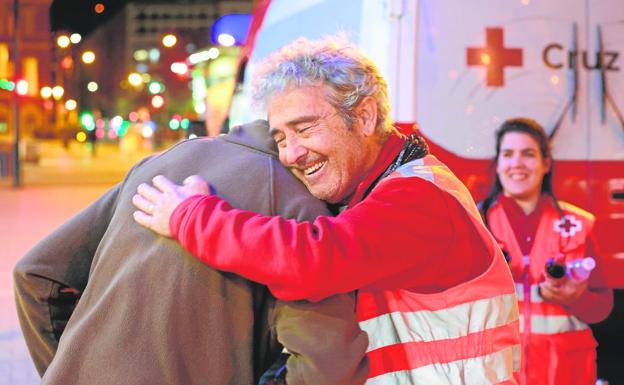
Child protection
There are also fewer women because under-18s are not permitted to live on the streets, and we didn't meet any on our visit. Although evictions leave entire families with nowhere to live and there are not many resources to help them, there is a protocol to protect children and those who care for them: the council's social emergency service will attend to the family and refer them to Puerta Única, who can arrange for them to stay in a hostel or similar for a few days.
In the meantime they look for somewhere else for them to go, which could be in another town or even another province. They also try to involve family and social networks of those who have been evicted, or they fund accommodation for them somewhere for a few months.
If the children are well-cared-for, it may be possible to provide further support. These actions prevent youngsters ending up on the streets or the child protection authorities having to intervene.
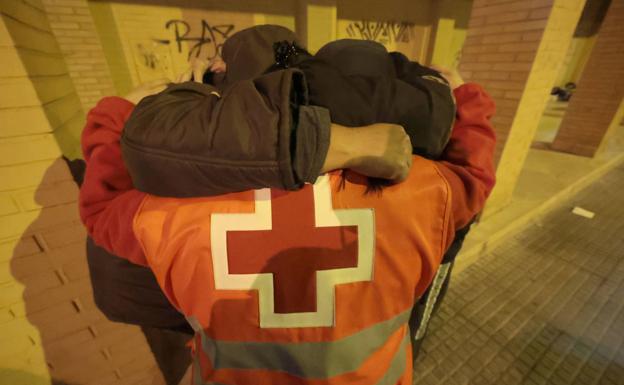
On our visit, we meet two women who are a couple. That is one of the reasons that they have been homeless "for a number of years," says Tamara, 29. "The family doesn't accept our relationship so that is why we have ended up living like this. Their minds are completely closed," she says. "Sometimes they have rung and asked how we were, and we told them what our situation was but they didn't care".
The women told us that they receive the Minimum Living Income and would like to rent a room, but apart from the cost, landlords often refuse to accept tenants with animals and they have a dog. At present they are living in a storage room. "The money we receive helps, but it isn't enough for us to afford what we really need, which is somewhere to live," Tamara says.
They don't work, but say it is very difficult when you are living rough. "We look for jobs, but where do you shower, where do you wash your clothes, where do you leave your dog? It's complicated," she says. Her partner Lourdes, 40, has tried several times to live with her father, who is ill, but it was difficult and he ended up throwing her out. They have also applied for somewhere to live, but the bureaucracy was too much for them.
They are not the only ones we meet who are living in a storage room. Juan Carlos, 50, is doing the same although in his case the owner knows and he has promised to leave as soon as he is given a place in the hostel. He says his problems are due to an allergy he developed to latex, which meant he couldn't continue to work in a kitchen. Now he only has 160 euros a month in benefits to live on.
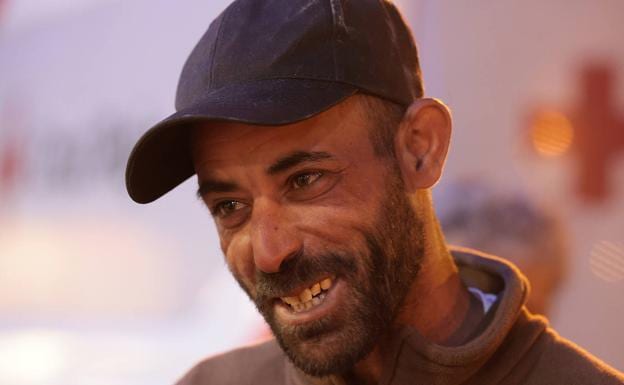
Reluctance to use resources
Benhamed, 35, from Algeria, is another example of LGTB discrimination. He has been homeless for ten years and begs outside a supermarket. "I came here because I like men and also because life is very hard in my country. I have four diplomas, but just don't know how to get a job. I don't like the hostel because there are so many people and I feel uncomfortable there," he tells us.
That made two people who were reluctant to take advantage of the facilities available to the homeless. This seems like a mystery to us, but "a lot of people don't want to abide by certain rules," Ballasteros says, and explains also that a lot of homeless people know how to manage.
"You talk to them and they receive some type of benefit, but if you point out that the Minimum Living Income is 565 euros a month and a room in Malaga can be rented for between 400 and 450 euros, they don't want to pay all that in rent and only have 100 euros left to live on. They don't see a roof over their head as a priority when that's all the money they have," she says.
As our route progresses we come across another situation: it is 10 o'clock at night, and people are already sleeping wrapped in sacks and blankets because they will have to wake up early, before the streets are full of people and the shops in whose doorways they are sleeping open. They reject the food brought by the volunteers, but nicely. Their stomachs are upset, they say. They have probably been living rough for years. This is the most terrible face of homelessness and exclusion.
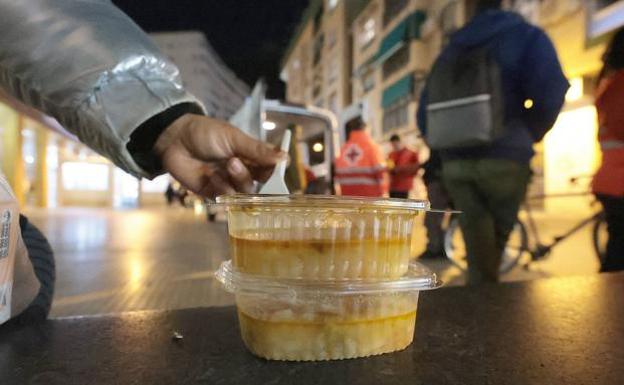
Recent arrivals
There are also recent arrivals, even in this city. They come to look for work because they think Malaga is booming financially and full of opportunities. They do not want to live on the streets long-term, but it is easy to fall into a vicious circle, says Ballasteros:
"You spend two nights on the streets and that makes you dirty. You have nowhere to shower, so if you go for a job interview they are unlikely to want you," she explains. Jorge is 26 and has come from Albacete. He says he had to leave because he had problems there. He is looking for work in Malaga because he is a waiter, has paid Social Security for seven years and believes that he could have a future here. But he knows that until he finds a place in a hostel he won't be able to get a job.
"I went for an interview and it went well but when I said I was living like this they said, "oh wait, we'll try someone else instead". I know that once I can get into a hostel I'll find a job. I'm a good worker," he says. The volunteers confirm that he could well be right.
Antonio, 23, has a similar story. "I left Cadiz because something happened there, but everything has gone wrong. One day after another, if it's not one bad thing it's another," he says. He tells us about arguments with the Guardia Civil and the police, who had demanded to see his documents.
"Look, I may not be a saint, like anyone else, but I have had nothing to do with any robberies," he complains. He is on the waiting list for accommodation, but he fell asleep in the city centre one day and woke up with nothing: everything had been stolen, including his documents. It's hard, living rough. Now, he is thinking of leaving Malaga and going to Almeria or Cordoba instead. "Maybe I'll get work in the greenhouses," he says, hopefully.
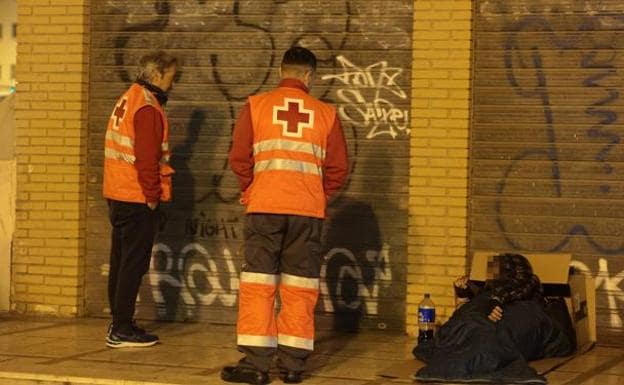
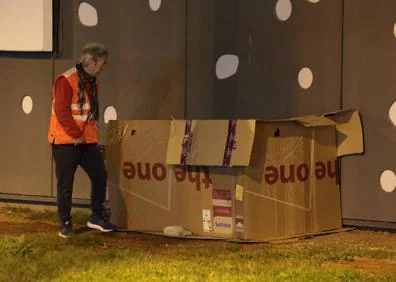
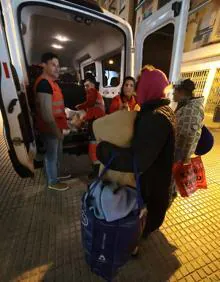
The difficult path to becoming self-sufficient
Social workers do not patronise homeless people or treat them like children. The aim for those whose circumstances have left them on the streets and the professionals who are trying to help them, is to work together, because that is the only way that anyone living rough will be able to return to an autonomous life.
Although there is not always a happy ending. María Rosa Gutiérrez, of the Cáritas charity, says the lack of jobs and cost of renting makes it difficult for many to reintegrate into society.
She calculates that only 25 to 30 per cent of those who leave the shelters become fully integrated. Eva Sánchez, of Accem, says the cost of rent ing is the biggest obstacle and is also why some families and individuals live on the edge, with recurring periods of homelessness.
